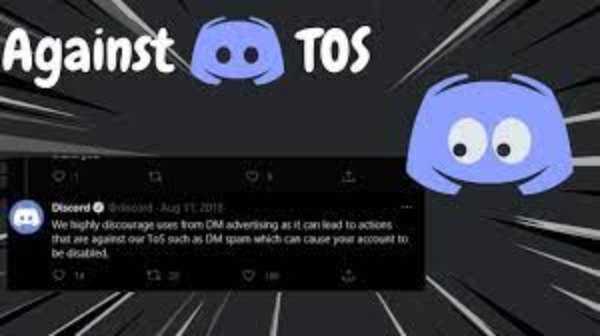Discord ToS And Privacy Policy

A user on the Discord subreddit reported a communication they had with TinyFeex, a platform admin, in late January 2022. TinyFeex claims in the emails that “cub” content does not violate Discord’s rules of service. Underage members of the furry community are referred to as “cubs,” and sexually explicit behaviors are referred to as “cub play.” Discord users reacted angrily in the comments, prompting subreddit administrators to remove the post and replace it with a response from Discord Trust and Safety mod guardian Cub’ and ‘loli’ have certain similarities,’ karrdian wrote. ” There is also a kind of ‘cub’ art that isn’t human or humanlike at all but instead depicts mythological creatures, for example. This content is far more ambiguous, which is why there isn’t a blanket prohibition on everything that might come under the umbrella.
Table of Contents
Discord Tos
Discord users began sharing their interactions with the Terms of Service team. MrTempestilence launched a Twitter thread on February 3 listing a wide range of accusations, ranging from zoophilia on Discord to administrators encouraging “cub play.” These tweets quickly gained traction, and Discord’s “gay zoo and feral” community was shut down shortly after. I had intended for them to be a simple joke about how bad Discord’s staff was, but as I began to add additional facts to the thread, I realized that what I was doing was significant “MrTempestSilence told Newsweek over Twitter Direct Message (he asked we withhold his real name due to privacy concerns). “People needed to know about Discord’s toxic personnel, and I was able to provide that information.”The Twitter thread received over 8,000 likes and drew the attention of the bigger Twitter conversation. Nick Monroe, a freelance journalist, began looking into the connections between Discord Terms of Service administrators and the furry community on February 4th. Monroe told Newsweek, “The story unwound itself as I pulled on the thread.” “Something is amiss with Discord’s trust and safety operation, as I and everyone who follows this post have discovered. In a response to Newsweek, Discord claimed the network “has a Terms of Service and Community Guidelines that all communities and users must follow.” These ban harassing, threatening communications, calls to violence, and any illegal behavior, and they cover a broader range of actions than other platforms’ standards, such as doxxing and disclosing private information. Though we do not read people’s private conversations, we do investigate and respond quickly to any reported server or user infraction, which may include shutting down offending servers or banning users. It’s difficult to moderate a social media platform, but it’s necessary for its survival. Users may migrate elsewhere if they believe their bans are unjustified or the rules are being manipulated for the benefit of others.
Read More: How To Grow Instagram Followers
INTRODUCTION AND ACCEPTING THE TERMS
Hello and welcome to Discord! These Terms of Service (“Terms”) are a legal agreement between Discord Inc. and its connected entities. They include and hereby include the Privacy Policy at https://discord.com/privacy (“Privacy Policy”). By using or accessing the Discord application or the website located at https://discord.com (the “Site”), collectively referred to as the “Service,” you agree with I that you are 13 years of age or the minimum age of digital consent in your country, (ii) that you have read, understood, and accept to be bound by the Terms if you are the age of majority in your jurisdiction or over, and (iii) if you are between 13 (or The Company maintains the right to revise these Terms at any time for a variety of reasons, including, but not limited to, compliance with changes in the law or reflecting Discord upgrades. If the changes have an impact on your ability to use Discord or your legal rights, we’ll let you know at least seven days before they take effect. Unless we expressly specify otherwise, your continued use of the Service following the posting of changes constitutes your acceptance and agreement to those changes. If you don’t like the modifications, your only option is to stop using the Service.
RIGHTS TO USE THE SERVICE
The Service includes a chat room and a social networking platform. You may be able to contact other users of the Service by using the Service’s public and private chat rooms, as well as messaging tools. The Service may also provide you with access to some software and/or other material that the Company sells. The Company provides you a limited, revocable, non-exclusive, non-transferable, non-sublicensable license to use and access the Service, subject to your compliance with these Terms. You agree not to (and will not attempt to) I use the Service for any purpose other than those expressly permitted by these Terms; (ii) copy, adapt, modify, prepare derivative works based on, distribute, license, sell, transfer, publicly display, publicly perform, transmit, stream, broadcast, attempt to discover any source code, reverse engineer, decompile, disassemble, or otherwise exploit the Service or any portion of the Service, except as expressly permitted in these Terms; (ii) reverse engineer, de Except for the permissions and rights expressly given in these Terms, no licences or rights are granted to you by implication or otherwise under any intellectual property rights owned or controlled by the Company or its licensors.The Company maintains the right to alter or cancel the Service (or any portion of it) at any time, with or without warning. For any reason, including but not limited to a breach of the Terms, the Company maintains the right to deny any user access to the Services without notice. If you break these Terms, the Company maintains the right to either issue you a warning or immediately terminate or suspend any or all of your Accounts created using the Service. You agree that the Company is not required to give you notice before terminating or suspending your Account(s), but that it may do so if it so chooses.
Discord ToS and Privacy policy?
On ToS; DR, Discord receives an E. That is the lowest possible mark, and it is the same grade that Facebook received. But why is that? Let’s take a look at the good, the bad, and the ugly reasons for Discord’s grade of E. As a disclaimer, I have assisted in the inclusion and rating of other services in ToS; DR as a volunteer, but I have had no participation in their rating of Discord.
The Good
On that page, the green lines reflect sections in the service’s legalese documents that are thought to be beneficial to users. Discord’s circumstances aren’t entirely horrible. There are some excellent points made. The majority of these were most likely added to comply with the European GDPR: You have the right to seek access to your personal data, and they may obtain your approval before transferring your data to third parties. There is also a complaint process for personal data treatment. Other helpful practices that more businesses should embrace are listed below. Users’ information will only be disclosed under certain circumstances, and if a company sends you a copyright takedown demand to remove content you submitted, the service will provide you the opportunity to defend yourself. Discord guarantees that your personal information will not be sold, and you can unsubscribe at any moment. Discord commits to notify users at least seven days in advance if the terms of service are going to change. That’s helpful to know. Other businesses have a bad history of modifying their terms of service and privacy policies without informing users and making the changes effective right away. Who compares the terms of service and privacy policies of every service they’ve ever enrolled for every day to see if anything has changed? Of course, no one does that. Except for the ToS; DR bots, who do just that. That’s helpful to know. Regrettably, Discord has decided that the same does not apply to its privacy policy, which is subject to alteration at any time and without notice. I’m not sure what bizarre purpose they have for having completely distinct update procedures for both publications, but they lose a point for it.
The Bad
There’s a lot to detest about this. Some have to do with content moderation, which is never forthcoming about the reasons (or rather, lack thereof) for removing access or content at will. Many of them have to do with user tracking, advertising, and content licensing to third parties. Others appear to be intended on limiting consumers’ capacity to contact the court system in the event of a dispute, such as renouncing the right to a class action and forcing binding arbitration. The list is lengthy, and I recommend that you look it up for yourself; yet, it is still a lot shorter and more condensed description of the companies’ original paperwork that they examine.
The Ugly
The worst clauses, which ToS; DR refers to as “blocker” cases, are highlighted in red. A couple of these are delivered to the service. Discord captures your private messages, photos, and audio interactions, with the exception that the latter is only used to deliver communication, as mentioned in their privacy policy: We may collect your username, email address, and any messages, photos, transitory VOIP data (to enable communication delivery only) or other information you submit through the chat feature, among other things. However, later in the privacy policy, in the section on “our use of your information,” they mention they can use this information for marketing communications and transfer it to third parties for advertising purposes, but you can opt-out of both, earning “excellent” points in ToS; DR. For whatever reason, the “service can read your private messages” scenario in ToS; DR, which is a “blocker,” was warranted by that text. Perhaps because it’s unclear what they do with such private messages under the privacy policy, and it’s quite logical to infer that the sections about third-party advertisement and marketing communications encompass that information.
Waiving your moral rights over any input offered is also a “blocking” point, and in some areas, it’s even illegal. The following extract from the ToS provides another “blocking” point: For any reason or no reason, the Company maintains the right to remove and permanently delete Your Content from the Service with or without warning.
It also states that your account can be canceled at any time for any cause, despite the fact that this is simply a “bad,” not a “blocker” item in the ToS; DR.
At any time and for any reason, the Company may terminate your Account and your access to the Service (or, at the Company’s sole discretion, applicable sections of the Service). Prior to any such termination, the Company is not required to give you any notice or warning. Unfortunately, such provisions are all too typical in company terms of service. While it’s understandable from a commercial standpoint for a service provider to wish to reserve the right to remove any content at any time, users may not want, like, or expect this. As public discourse shifts more and more to the online realm, and tech monopolies consolidate control over those platforms (consider that Discord was rumoured to be in talks with Microsoft for a $ 10 billion acquisition not long ago, but later turned it down to pursue its own IPO), the place of discourse shifts from the private to the public realm, with all the implications that entails. Content moderation is becoming a more challenging task, as it is not always clear whether certain content is legal free speech or should be removed. Researchers, internet experts, activists, politicians, and others from all around the world are debating whether the policies and reasons for moderating choices, blocking, and removing content should be scrutinized and transparent. Who hasn’t heard of a friend or acquaintance who lost access to years of data accumulated in service because a faceless, massive corporation decided to block them, citing generic “terms of service violations” as the reason, without specifying which specific action they took that warranted the punishment, or which specific clause was violated?
Read More: Best Alternatives To Instagram Right Now
Terms Of Service Grade
Aside from the aforementioned good, poor, and blocking points, “neutral points” refer to characteristics of the service and privacy policies that are significant but do not merit gaining or losing points for the grading system. Even if they have no bearing on the final grade, you should read them all since they have an impact on your relationship with the service provider. Finally, the service grade is determined by weighing and adding all of the points recorded for all of the papers (usually the terms of service and privacy policy, but some services have more complicated arrangements). Some terrible cases, for example, are considered more serious than others, and hence deduct more points from the overall score. Similarly, some excellent points are more significant than others, so they receive more credit. This page explains the grading system.
Finally, Discord receives an E, indicating that it is ineffective.
Competitors With Better ToS
Now that we understand why Discord’s rules for providing the service “for free” aren’t quite ideal, we can consider what alternatives are available and whether any of them have better terms of service and privacy policies. Yes, it turns out, and here are a few examples. We also look at the features each provides so you may compare them and leave Discord without losing too much (or never enter it in the first place).
Matrix
Matrix is an open, secure, and distributed protocol for interoperable communication services, rather than a service. In the communication services of a digital monopoly, you rely on a single corporation to make regulating choices and to prevent you from communicating with users outside their walled garden. Instead, with Matrix, you get to pick your own provider or even run your own while still being able to communicate with everyone on the Matrix network. Consider it similar to email, but with end-to-end encryption, user-friendly interfaces, phone and video collaboration, and more. For a complete list of features, go to Matrix’s official website. Even better, you can begin gradually migrating or even experimenting with Matrix in your community. Bridges, for example, will sync your chat with a variety of different messaging platforms, including Discord, mirroring the channels. As a result, Matrix users can communicate with your community on the other side as if they were on the same platform. It’s the kind of interoperability that large corporations despise. You will need a Matrix client to use Matrix (think of it as an app that gives you access to the network). Element is the most popular Matrix protocol client that is both free and open source. New Vector Ltd is one company that uses Element to provide a messaging service. So, let’s examine their terms of service.
Slack
Slack is another popular communication channel service that many people use to establish communities. Slack is proprietary, unlike Element, which is free and open-source software. That means it could be purchased by Big Tech in the future, with all that involves. Slack also lacks features like voice and video calls that Discord and Element provide. Slack, on the other hand, provides APIs for integrating with a variety of other services, which is one of the reasons for its continued popularity. In addition, their terms of service are ranked higher than Discord’s and are on par with Elements.
Read More: How To Use Instagram For Business
Conclusion
If like most people, you never read the terms of service and privacy policies before clicking to accept them, you now have a tool at your disposal to assess how a firm pledges to treat you and your data at a glance. Other sources, in addition to ToS; DR, provide curated lists that might assist you in discovering and selecting services that respect you and your privacy. Privacytools.io and switching. software are two sites I like to use. According to ToS; DR, Discord’s terms of service and privacy policies are largely hostile to users. Fortunately, switching to Element is pretty simple and straightforward, and you’ll still be able to connect with folks who haven’t yet opted to leave Discord.
Follow Techwaver for more Technology and Business News.



